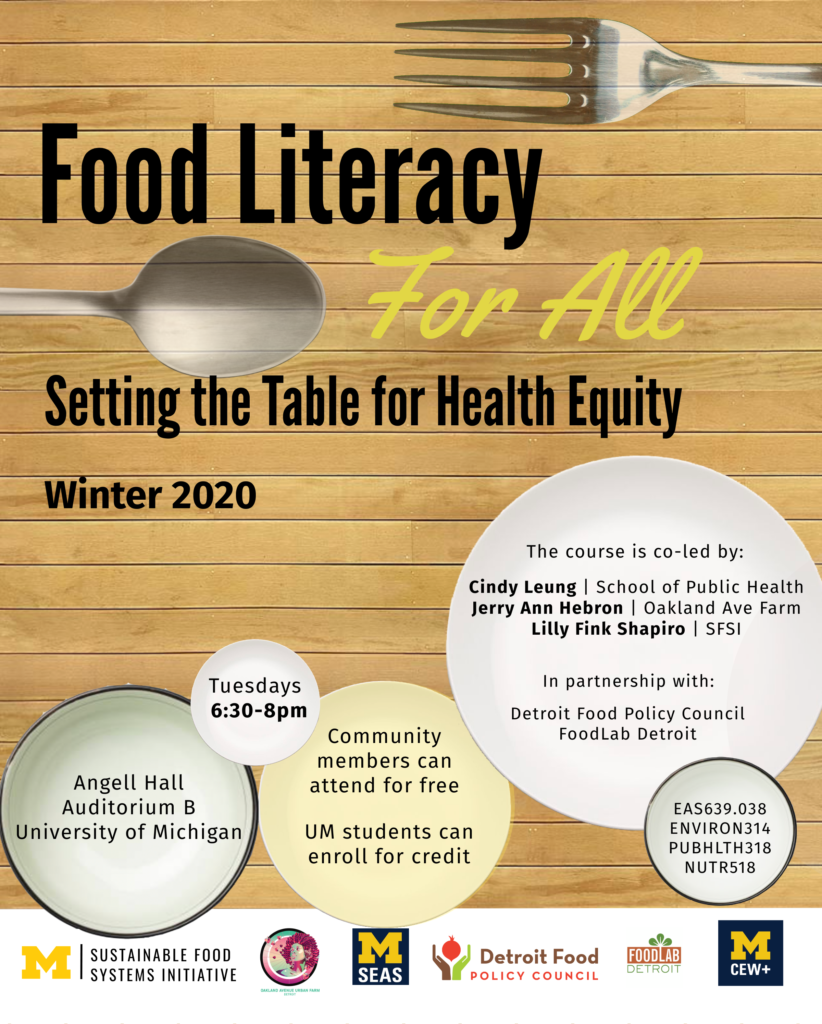CO-SPONSORED VIRTUAL PANELS: Food Literacy For All
Angell Hall, Auditorium B, 435 S State St, Ann Arbor, MI 48109
Tuesday evenings
6:30-8pm
Jan 14 – April 21, 2020
Full lineup of guest speakers coming soon.
Food Literacy for All will take place again for a fourth year during the winter semester of 2020. U-M students can enroll in the course for credit and community members can attend the series for free. More information coming soon.
WATCH FOOD LITERACY FOR ALL VIDEOS
Food Literacy for All is a community-academic partnership course started in 2017. Structured as an evening lecture series, Food Literacy for All features different guest speakers each week to address diverse challenges and opportunities of both domestic and global food systems. The course is designed to prioritize engaged scholarship that connects theory and practice. By bringing national and global leaders, we aim to ignite new conversations and deepen existing commitments to building more equitable, health-promoting, and ecologically sustainable food systems.
#FoodLiteracyforAll
Course Summary
Concurrent food, energy, water, and climate crises, and a global rise in obesity amidst widespread hunger and undernutrition, have re-focused public attention on the deficiencies and complexities of the global food system. Yet, a diversity of ‘alternative’ food systems demonstrates that food systems can be nutrition-sensitive, socially just, and conserve natural resources. Transforming food systems will require coordinated effort across scales, drawing upon diverse disciplinary and practical perspectives, and understanding how value systems shape food and agriculture. Linking theory and practice is also essential, involving the full range of actors moving food from farm to fork.
This course offers a unique opportunity for students to gain an interdisciplinary introduction to food system issues through a seminar series bringing high profile speakers to campus from diverse sectors: policy, academia, grassroots movements, public health, conservation, and more. Students will integrate theory and practice through this partnership course that connects campus and community, led by a UM faculty member together with a co-instructor working to develop urban agriculture and enhance food justice and food sovereignty in Detroit. Students will develop competencies and cognitive skills in the area of food system sustainability including critical and systems thinking, community engagement, creativity, and analytical ability.


